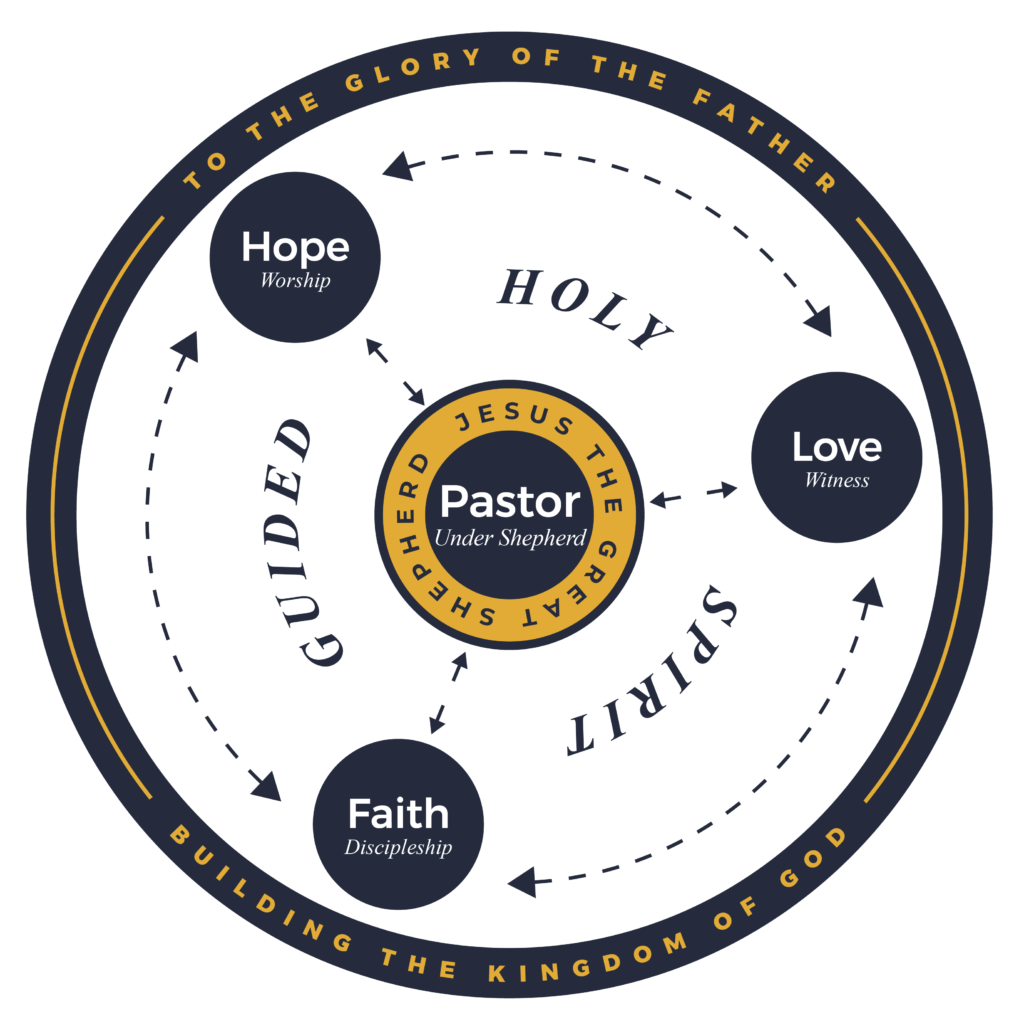Speaking of Life 2031 | I’m Ready, My Lord
The phrase Hineni means, “here I am”. In the Bible, Hineni is most frequently used in response, when God personally calls on an individual to something difficult or important. How do we respond when God calls on us? May we respond with trust and reply, Hineni.
Speaking of Life 2031 | I’m Ready, My Lord
Greg Williams
“Magnified, sanctified, be thy holy name
Vilified, crucified, in the human frame
A million candles burning for the help that never came
You want it darker, we kill the flame.
Hineni, hineni
I’m ready, my Lord”
With characteristic enigmatic intensity, Jewish singer Leonard Cohen penned these lyrics to his classic “You Want it Darker.” Just like the lyrics, the music is creeping, murky, and beautiful in its own dark way.
The repeated refrain “hineni, hineni” is an extremely powerful Hebrew word. It means “here I am.” One of the most famous places it appears is right before the story of Abraham almost sacrificing Isaac in Genesis 22:
After these things God tested Abraham and said to him, “Abraham!” And he said, “Here I am.”
Genesis 22:1 (ESV)
Hineni means: “I’m fully here. At your disposal. I’m ready, my Lord.” It’s the same phrase that Moses says to the burning bush, and that Isaiah screams into the strange vision he has of God’s presence: “Here am I, send me!”
Hineni Hineni –– I’m ready, my Lord.
When he was asked about this in an interview, Cohen called the lyric, “That declaration of readiness, no matter what the outcome, that’s a part of everyone’s soul.” It’s the impulse in us that says we are ready, and available, for whatever God would require of us.
Is this our answer to when God calls us out of ourselves and into change, into his transforming story? Or are we in the habit of just showing up? Do we just drop our leftovers in the offering plate and mutter a few words of worship, just “pay and pray”?
Or are we fully there? Are we fully present when God asks us to go to the next adventure with him? Abraham was called to father nations at the mature age of 100; Moses was called out of his comfortable life as a shepherd; Isaiah was called to speak a prophetic word to unhearing people; and Mary the young teenage girl was called to bring the Messiah into the world.
These heroes of the faith, after a few decades of trial and error, were finally ready (hineni) and they walked with a trust that God would provide and take care of them, knowing they didn’t have to trust in themselves anymore.
May we all be ready to say, with all of ourselves, hineni, hineni. I’m ready, my Lord.
I’m Greg Williams, reminding you to be fully ready when the Lord calls.
Psalm 13:1-6 • Genesis 22:1-14 • Romans 6:12-23 • Matthew 10:40-42
Our theme for this week is God working within our story. We see God working in the messy, imperfect world and the flawed human beings that live in it. Psalm 13 is a lament and then a restoration of faith that God will work within the circumstances, no matter how painful. Romans 6 talks about God working within us, with our diseased souls and bodies, to bring about health and wholeness. Matthew 10 tells about the humble story of Jesus sending out disciples—broken people among broken people—to speak the most important message in human history. Our sermon, “Here I am, Lord” is on the painful story of Abraham and Isaac in Genesis 22. Even when circumstances seem the bleakest and most dysfunctional, God hasn’t left the building.
Here I am, Lord
Genesis 22:1-14 ESV
Read or have someone read Genesis 22:1-14.
After reading this passage we might say, as Peter said in John 6, “This is a hard saying; who can listen to it?” This story is famously difficult to interpret well and has been used by many opponents of faith as ammunition.
From one angle, this looks like horrible child abuse on the part of Abraham—to sacrifice your own flesh and blood? To murder the vehicle of God’s great promise?
From another angle, it looks like horrible abuse on the part of God—to test someone you claim to love? To string Abraham out in decades of promises only to ask him to snuff out their fulfillment? To ask Abraham to present the sacrifice of a human being, something God promised he would never ask for? Was God really just another of the bloodthirsty idols of the surrounding countries?

There is no water-tight, airtight way to read this passage, and I won’t claim to have that skeleton key on me. It is indeed a “hard saying,” and the Bible would be easier to read without stories like this one.
…or Adam and Eve kicked out of the garden.
…or those who didn’t make it into the ark.
…or the people of Sodom and Gomorrah.
…or the children whose deaths are described in the Psalms.
…or the family of Job in a collapsing house.
…or the Israelites dying in their desert wandering.
…or Jesus on the cross.
The story of Abraham and Isaac isn’t the only hard saying in Scripture. It is perhaps one of the hardest, but there is no shortage of moral impasses, theological enigmas and confusing stories. Anybody who takes Scripture and ties it for you neatly with a bow will probably also sell you beachfront property in middle of the desert!
These are difficult issues in Scripture, and to smooth them out too easily is to do a disservice to God’s word. The issues can seem unfair. The stories can seem strange, the circumstances unfair, and the people seem forsaken.
…and so can life.
Abraham, Jesus’ great-times-great grandfather, is about to kill his own son. This is the heritage Jesus started in; these are people Jesus descended from. He came at the end of a long, tattered, dysfunctional bloodline into a confusing, brutal world.
Jesus came into this difficult world in which some of the stories, like Abraham and Isaac, don’t resolve and remain painful mysteries. Jesus came into that world—the one where children die, marriages crumble, and addictions take some of the people we love.
This is the world in which he was conceived out of wedlock and born to a teenager in someone’s garage and placed in a cattle trough.
None of us has been asked to do what Abraham almost did to Isaac, but some of us have probably felt like we were asked something that painful. We’ve watched our children suffer and wished for nothing more than to take their place. We’ve wondered why God allows this all to keep going. The story of Jesus doesn’t shy away from this pain and ugliness.
The narrative itself is painful to read. It’s haltingly slow, drawing out every detail and grinding down to the seconds.
He said, “Take your son, your only son Isaac, whom you love, and go to the land of Moriah, and offer him there as a burnt offering on one of the mountains of which I shall tell you.” (Genesis 22:2 ESV)
There is ancient commentary on this verse that goes…
God said, “Take your son.”
And Abraham said, “I have two sons.”
He answered him, “Your only son.”
He said to him, “Each is the only son of his mother.”
God said, “The one whom you love.”
Abraham replied, “Is there any limit to a father’s love?”
God answered, “Isaac.”
See how drawn out that is? See how long it takes the conversation to happen? Then the details are excruciatingly slow after that: Abraham said to Isaac his son…Isaac said to Abraham his father…Abraham walked with his only son Isaac…and so on. It’s as if the narrator doesn’t want to tell the story.
There are plenty of modern commentators who reject this story. They refuse to preach on it or see it as undermining the story of Abraham or the Bible in general.
I can understand why some readers have difficulty with this story. It seems entirely out of place and character for the narrative, Abraham and God himself. Yet, at the same time, we don’t get to snip the parts out of the Bible––or life itself––that we don’t get or don’t like.
So, I’m not going to present to you a long theological treatise on this, nor am I going to act like I have the answer to it. But I believe we can still learn from it. It’s in the Scriptures, and therefore we need to reflect on it and learn from it.
One thing to bear in mind here is that Abraham’s family was surrounded by other tribes whose cults demanded human sacrifice. It seems completely heinous and crazy to us, but it wasn’t to them. They would have probably regularly seen other groups participating in this awful practice.
So, from one angle, we have God proving to Abraham once and for all definitively that he is NOT one of these pagan gods. Abraham couldn’t buy him off, like they did in the surrounding cults. The God of Israel, the one true God, is the one who sends a ram, the one who pulls back. God himself provides the sacrifice as a substitute. Even though everything in the world, and everyone in the world is his, he gives to the world.
Step back to the grander story. God could have killed the human race in the Garden of Eden, or at many times since then. He could have killed the promise right there on the altar, stopped the plan of salvation altogether, but instead he provided another way. He is the God who always provides a ram. When the flood waters came, he provided Noah. When the desert wanderings came, he provided Moses. When Israel rebelled, he provided the prophets. And in answer to all sin, he provided Jesus.
The other gods in our world of greed, addiction, and self-centeredness will always let you bring down that knife and commit murder. Selfishness has no bounds and sin’s appetite is bottomless.
Think of the ridiculous riches in the world. There’s the story of Michael Carrol, a teenage garbage man who won the lottery in 2002. He won the equivalent of $11 million (9 million pounds). He bought several houses and luxury cars to do crash-up derbies in his front yard. He spent the money on drugs, parties, women and everything he could get his hands on. In 2010, he reapplied for his job as a garbage man. Eight years and he spent a fortune. His greed and need knew no bounds, and nothing satisfied him.
That’s an embarrassing example, but what would many of us had done with $11 million? Especially at age 19? The bloodthirsty idols in our culture, not just ancient culture, would never “provide a ram.”
Next time you are tempted to give in to lust, unfettered greed, even just indulge your anger, think about the end result of these things. What is the fruit of giving into these gods? Where will that leave you and the rest of the world?
But back to Abraham. Back to the terrified father and his son ascending a mountain alone. If we zero in on Abraham himself, we see someone who has gone on a transformative journey.
We see a man who received a promise from God decades ago and tried to short-circuit that promise and take it into his own hands!
He tries to pass off his wife Sarah as his sister at one point and almost gets them both killed. He has a child with the maid and consequently starts a tribal feud that went on for centuries (between Isaac and Ishmael). He falls down laughing at God. His wife laughs at God. Throughout his life, Abraham is anything but consistent—he is self-protective and self-interested.
But look at how Abraham answers God’s call now at the beginning of this story:
After these things God tested Abraham and said to him, “Abraham!” And he said, “Here I am.” (Genesis 22:1 ESV)
Abraham answers with a Hebrew word: “henini.” If you know classic rock, you may recognize this word from Leonard Cohen’s murky classic “You Want it Darker.” He sets a nightmarish mood with lyrics and creeping music and over and over repeats: “Henini Henini—I’m ready, my Lord.”
The song expresses the dark mood of this story well and the gut-level depth of this Hebrew word: “I’m ready—no part of me is held back, I’m at your disposal.” This is Abraham’s answer back to God. Abraham, the ever-evasive self-saver, the back-stabber, self-lover, God-mocker answers with: “I’m completely here, Lord, what do you need?”
What a change in Abraham! All the hardship and pain and greatness of his journey with God has changed him deeply. Then, through the plodding pace of the narrative, we see the depth of his transformation.
[Isaac] said, “Behold, the fire and the wood, but where is the lamb for a burnt offering?” Abraham said, “God will provide for himself the lamb for a burnt offering, my son.” So they went both of them together. (Genesis 22:7-8 ESV)
Here we see the depth of Abraham’s change. He’s gone from the hustler who fixed things in his own terms to the man who trusts God, even when everything seems lost. Even when the whole world seems upside down—God will provide.
Abraham’s faith has so grown that he trusts God, even when God seems to be taking away his instrument of promise. God will provide. Abraham has made the transition from trusting in God’s gifts to trusting in God himself.
Henini—Here I am.
He also uses that Hebrew word again in a heart-breaking moment just before this:
And Isaac said to his father Abraham, “My father!” And he said, “Here I am, my son.” (Genesis 22:7 ESV)
He uses the same word to his son: “I’m fully here. I’m at your disposal.” I would gladly replace you on that altar; I’m not here to preserve myself. We see the reckless love and trust that God has grown in Abraham. Instead of the cagey, proud patriarch he once was, we see him making himself fully available to his son. I’m right here son, completely.
This prefigures another person many centuries later, on another mountain, who also carried the wood on his back. Who said, “Not my will, but yours be done. I’m here, I’m at your disposal.” And that time the ram never came. The tragic sacrifice went all the way to its end, and the spear went in.
But we are released of that tension in this story:
Then Abraham reached out his hand and took the knife to slaughter his son. But the angel of the Lord called to him from heaven and said, “Abraham, Abraham!” And he said, “Here I am.” (Genesis 22:10-11 ESV)
Henini—Here I am. Here I am, and I’m ready. God provides the ram. Even this is a small tragic picture—a helpless animal caught in the brambles by his horns. It won’t be your pain today, Abraham, but there will be pain and helplessness and death, and that’s the world we live in. And yet at the same time it’s shot through with love, grace, trust, and God’s provision.
So Abraham called the name of that place, “The Lord will provide”; as it is said to this day, “On the mount of the Lord it shall be provided.” (Genesis 22:14 ESV)
Abraham and Sarah, who both laughed at God, who called their son Isaac, which is a pun on the Hebrew word for laughter, now call this place where Abraham felt completely forgotten by God “the mountain on which God provided.”
Now, have we fully answered the painful enigma of the story of Abraham and Isaac? I don’t think we have. We’ve listened to it, we’ve learned from it, and we know that our faith and our Lord aren’t afraid to face these difficult questions.
Maybe father Abraham and his very relieved son brought back three points back down the mountain for us.
- Jesus is the real Lord for the real world. He was born in a long line of dysfunctional, utterly human people who got tangled up in life’s mysteries and hardships. A fairy-tale Lord is one who drops out of the sky, and that’s not Jesus.
- Henini—”Here I am, Lord.” Are we that kind of ready for God? Are we that kind of available to him when he calls us to do something?
- The ram provided. The bloodthirsty idols in our lives will take everything. The idols of unbridled pleasure, self-addiction, pride, and bitterness will take every relationship you have and poison it and every joy you have and empty it. But God will provide the ram. God wants to preserve you, save you, and make the enduring spark of who you are into a flame.
Questions for Speaking of Life: “I’m Ready, My Lord”
Watch video to start
- “Henini” is the Hebrew word for “I am here,” but it means much more than that. It means “I’m at your disposal. I’m ready to do whatever you ask.” How is that different than just being “here”?
- We talked about how it took decades for God to get the patriarchs and matriarchs in Scripture to finally trust him. Why do you think it takes that long? Is it encouraging or discouraging to you that this is such a long process?
Questions for sermon: “Here I am, Lord”
Read the lectionary reading– Genesis 22:1-14
- This story of Abraham and Isaac is one of the most notoriously difficult passages to interpret in all of the Bible. Why do you think it’s included? Can we still learn from it?
- We talked about the example of Michael Carroll, a teenage lottery winner who spent an $11 million fortune in eight years. Why is it that our “gods” of greed, pleasure and self-addiction are so voracious? How is God different?
- We talked about the change in Abraham from a shifty con-artist to someone who said, “I’m ready” when the Lord called. Have you ever seen the Spirit effect this change in someone? In your own life?
- The Lord always “provides a ram.” He intervenes to save us and keep us going. Can you think of an example like that with another biblical hero? (Joseph in the cistern, etc.). What about yourself?
Quote to ponder:
I did my best, it wasn’t much I couldn’t feel, so I tried to touch I’ve told the truth, I didn’t come to fool you And even though it all went wrong I’ll stand before the Lord of song With nothing on my tongue but hallelujah.~~Leonard Cohen, Hallelujah










